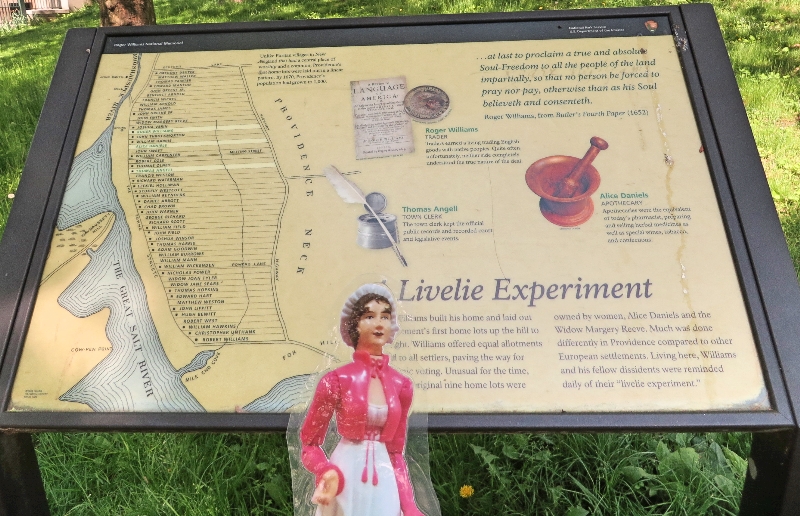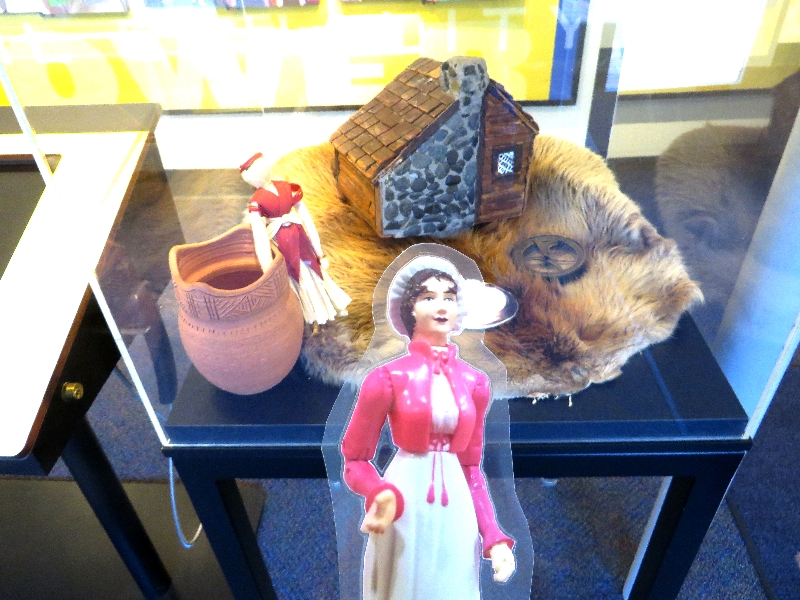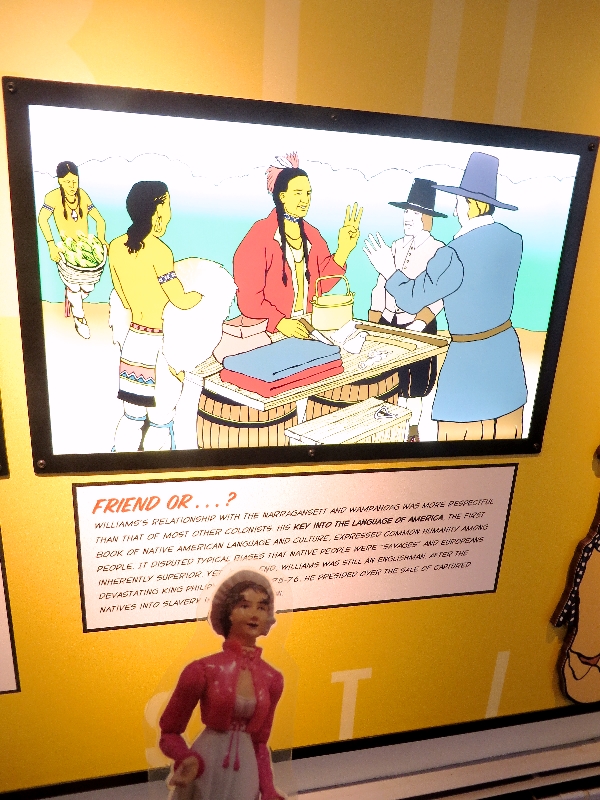Flat Jane Austen in Providence:
In which Jane learns something about the history of this town
"Oh brave new world. That has such people in it!" ~ Shakespeare, The Tempest; Act V, Scene I
May 16, 18__
My dearest friends,
Please excuse my long absence. I have been quite busy learning about this wondrous strange land of merchants, rebels and rogues. It seems that in the primitive backwater that is America, girls are educated to become bluestockings and on this visit I am becoming shockingly blue! Shall you recognize me when I return home? I take a trip with my host to visit an historian who regales me with tales of the early history of this fair city.
This colony, state (I am shockingly forgetful of the independence of the American colonies), Rhode Island and Providence Plantations (plantations being the word for estate or large farm) was founded by an English lawyer, minister and freethinker in 1636. Like my father, Mr. Williams was ordained as a minister in the established church. Unlike my father Mr. Williams became disaffected with the Church of England and allied himself with those detestable Puritans. In 1630 he joined the Puritans in Massachusetts. Not being satisfied with their firm commitment to their "purity", he migrated from Boston to another town called Salem. While in Salem, he preached separatist ideas about the state being completely separate from the church. Mr. Williams also suggested the land was not freely given by the King but belonged to the Indians and as such they should rewarded.
Mr. Williams believed that the first four of the Ten Commandments are matters of individual conscience and should not be enforced as laws by the government. In October of 1635, Mr. Williams was charged with "new and dangerous opinions against the authority of the magistrates." I should think so! The Puritan government banished Mr. Williams from Massachusetts Bay Colony.
After trying to settle in Plymouth Colony, across the Seekonk River, near where Susanna's mother resided in childhood, Mr. Williams spent a winter with the Wampanoag Indians learning their language.
He became a trader, trading sundries with the local Indians and in spring rowed across the river to Narragansett Indian territory. Mr. Williams negotiated a land deal with the chieftains (their word is "sachem") Cononicus and Miantonomo. The Narragansett could come and take whichever English goods they wished.
Mr. Williams treated the Indians with more respected than most Englishmen. He even wrote a book about their language and culture. He believed the Indians were NOT savages as most believe and tried to find common humanity among people. He thought, perhaps the Indians were of Jewish descent, one of the Seven Lost Tribes of Israel and as such, should be treated as humans worthy of salvation. All right... this I can understand.
The system of government was quite different from anywhere else, not having a formal charter (more on that later) or settled form of government. Once a fortnight the heads of households, men AND women, gathered to consider issue. All decisions supported by the majority were binding in civil matters. The government never collected taxes to support the church and matters of religion were left up to individual conscience. Thus this colony became a haven for those seeking "soul liberty".
 |
| Roger Williams carried this compass and sundial to help find his way both literally and spiritually. |
 |
| Was this "livelie experiment" a failure or success? |
 |
| Roger Williams National Memorial "New and Dangerous Opinions" National Park Service, Providence, Rhode Island |
Today we are grappling with the legacy of our hero. Roger Williams believed in compensating the natives for their land and wrote a book, Key into the Language of America, the first book of Native American language and culture, in which he expressed common humanity among people. He argued against the prevailing belief Native people were “savages” and Europeans inherently superior.
Roger's ideas of civil equality, government by the people, and separation of church and state influenced Thomas Jefferson and the framers of the United States Constitution. The Bill of Rights is inspired by Roger Williams's beliefs. The government of the United States is supposed to derive authority from the people with the Constitution guaranteeing each person be free to follow his or her own conscience, regardless of religious belief.
However, following the catastrophic King Philip’s War of 1675–76, the Natives attempt to reclaim their land, Roger presided over the sale of captured Natives into slavery in the Caribbean.
There are many questions to consider. Was he a good guy, a bad guy or an Englishman of his time and place In 2020 Rhode Islanders voted to remove "Plantations" from the state name given the connotations it brings to mind of enslavement.






No comments:
Post a Comment